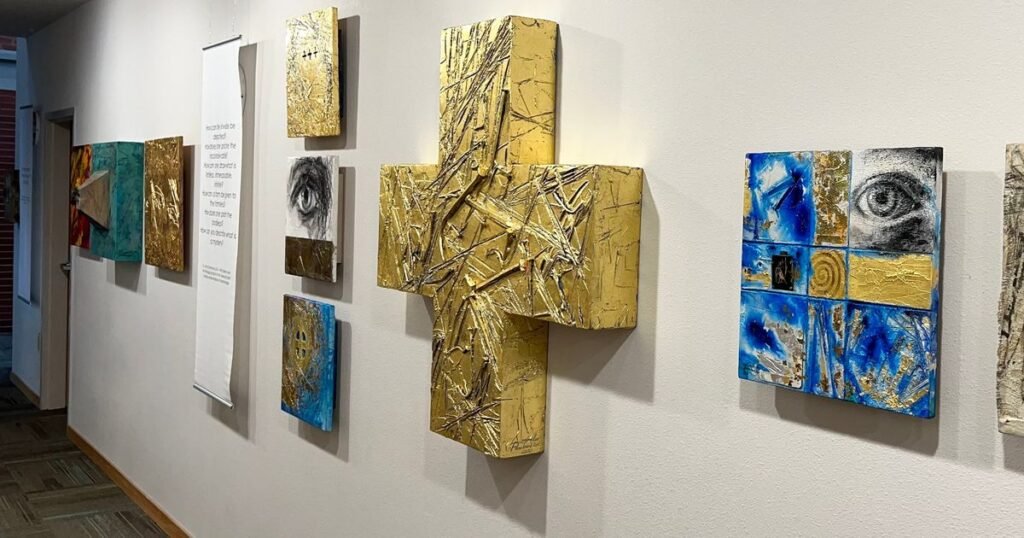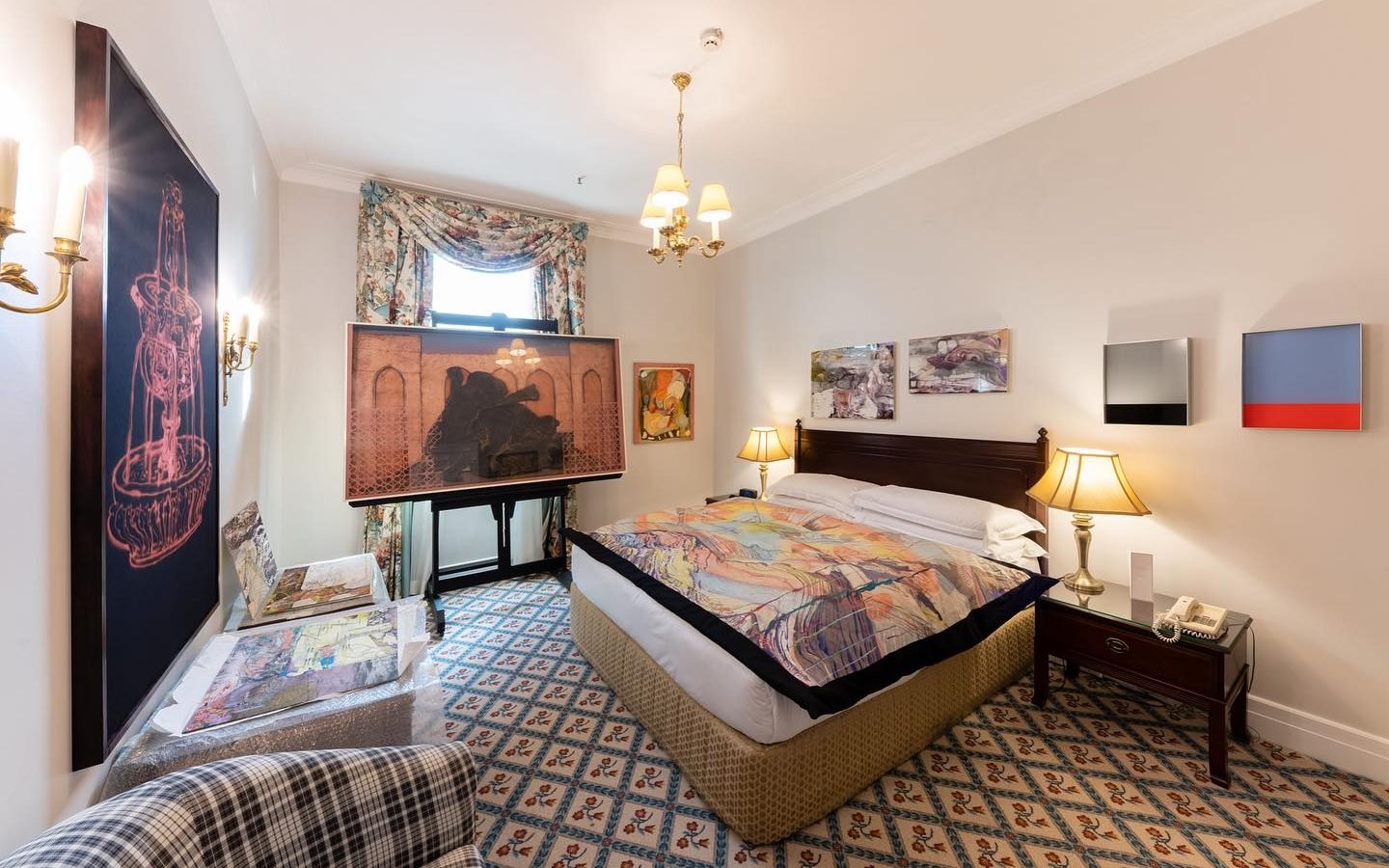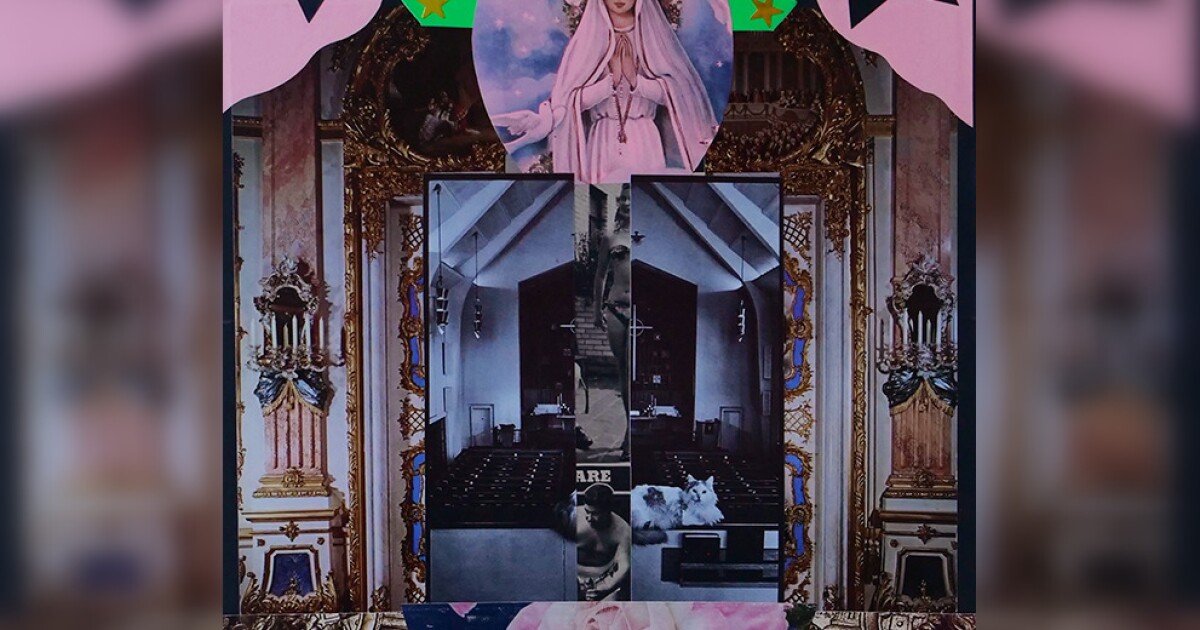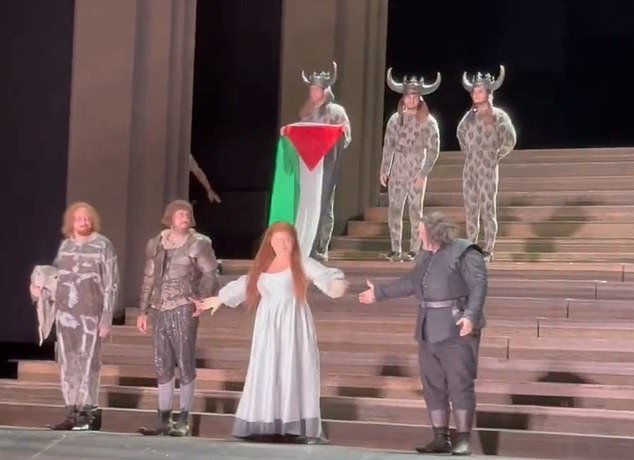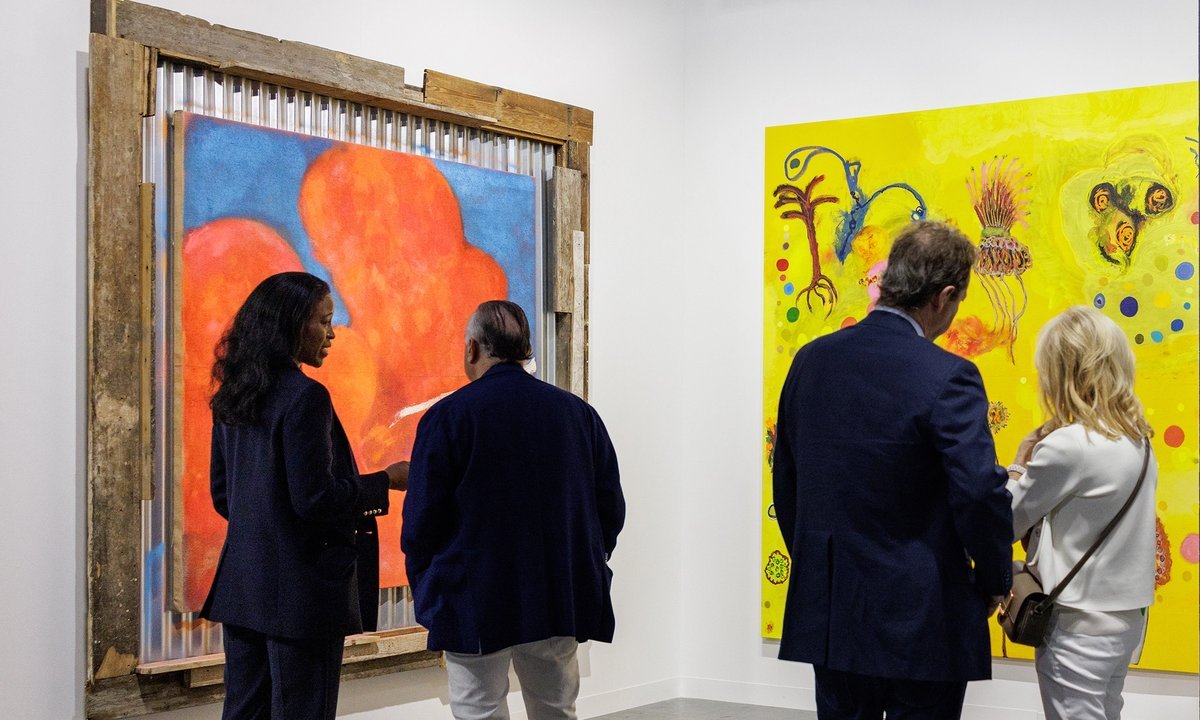Ludmila Pawlowska was transformed when her mother died in 1997.
Before her mother’s death, the Kazakh-born contemporary artist painted the flowers and plants of the Swedish countryside where she moved to continue studying art. In grief and no longer able to paint these landscapes, Pawlowska turned to a means of prayer she grew up with: traditional Christian icons.
“After the funeral, I went to different churches, talked to different priests. I went to different monasteries. And I remember, somehow, icons helped. And I thought a completely different way,” Pawlowska said. “Icons told me a new way of being divine.”
Since then, Pawlowska has transformed these icons into abstract expressionist art, transforming those who view it like she was 27 years ago.
Almost 200 of Pawlowska’s icon-inspired paintings are on display at St. James Episcopal Church in Pullman, the latest stop on her international “Icons in Transformation” exhibit tour. The exhibit, which millions have seen across several European countries and the United States, runs through Nov. 6.
In addition to Pawlowska’s paintings, “Icons in Transformation” includes 19 icons on loan from St. Basil’s Monastery in Suzdal, Russia.
“This really opens us up to something new, a new vision of our spirit, a new way to even encounter prayer,” St. James rector, the Rev. Linda Young said. “Rather than praying in words, to pray with a piece of art is something that we have been kind of encouraging.”
Between churches, museums and cathedrals, no two exhibits are the same.
In St. James, Pawlowska placed her paintings and the icons on loan throughout the entryway, east hallway, church and hall, formerly the church.
One painting hangs from the rafters under the church’s skylight. Dozens of others sit in rows in St. James’ hall, an arrangement Young likens to people sitting in pews. Toward the back of the church, where St. James priests and ministers give their sermons, are many of the icons.
“It was almost like we’d transformed the church,” Young said. “Because we had other pieces up that were nowhere near as beautiful as these pieces, plus a lot of empty space. And so the way she’s filled the spaces has just made it a whole different feel in the church.”
The exhibit is not just visual, but audial. Background music curated by Pawlowska and her husband Jan Lech, who also curated the exhibit, cycles through new-age, classical, folk and gospel songs.
“That was her sense and why she wanted the music in (the hall), was so that people could sit in here and reflect and listen to the music and look at the art,” Young said. “And have it be a more reflective space.”
To transform an icon, Pawlowska uses mixed techniques – painting and texturing with gesso, fabric and other mediums – to layer wooden panels. Her materials range from crystals, stone and glass to coins, bullets and other objects. She calls it three-dimensional painting after the effect it creates in each of her contemporary artworks.
Like the icons Pawlowska takes inspiration from, many of her paintings feature eyes and the colors red, blue and gold as motifs.
Pawlowska said her paintings have meaning, but that meaning is open to interpretation. In Pawlowska’s words, her work is completed by the viewer.
“It’s always this dialogue between the visitors and the artist,” Pawlowska said.
“Icons in Transformation” began touring Europe just one year after Pawlowska’s mother died. The exhibit expanded to the U.S. in 2011 and was scheduled to stop in Pullman in 2020 before the pandemic restricted it.
Admission to the exhibit is free and open to all faiths or a lack thereof. When it arrived in Pullman, Young said Lutherans, Methodists and Mormons helped install the exhibit in St. James.
Besides grief, Pawlowska attempts to capture in her paintings life, passion, truth, divinity and love – themes all people may relate to regardless of religious background.
“Transformation, it’s just about our life, our journey to understand who we are,” Pawlowska said. “And I think all of us, we have some inner icon inside like our identity, who we are.”
Pawlowska donates a portion of the proceeds from “Icons in Transformation” to the United Nations Refugee Agency and Swedish projects aiding refugees from Ukraine, where her family is from.

